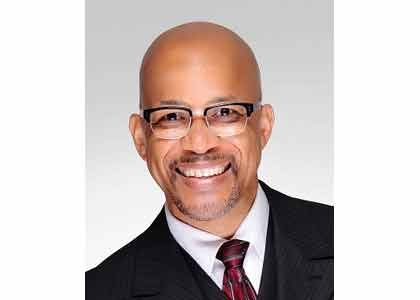I am privileged to have a unique vantage point from my eighth floor office window on the campus of Coppin State University, a panoramic view of the Baltimore skyline from Mondawmin Mall to the Francis Scott Key Bridge and beyond. While beautiful, the view provides little indication of what is happening behind the veil of the city.
Those who are aware of the daily lives of many citizens of Charm City know that the events referred to as “the uprising” were somewhat predictable. The socioeconomic disparities in our city have created conditions that fostered a letting of emotions, and an unfortunate degree of opportunistic criminality, fueled by decades of marginalization and growing pockets of intense deprivation.
While many correctly suggest the events were a direct response to the tragic death of Freddy Grey, we must also admit that the young man’s untimely death was merely an accelerant for an already smoldering flame of frustration.
How did we arrive here after so many centuries of struggle for advancement? What will it take to change the conditions that fuel this kind of explosive frustration in the community? The answers to these questions are more complex than any one person can answer. However, I’m offering the perspective of a business school dean in a Historically Black Institution located in the heart of West Baltimore, who is a faith leader with a heart for the holistic well being of the people.
I will first offer several observations and then close with a few concluding thoughts:
My first observation is that the problems do indeed have a racial element, but are more comprehensively economic. I grew up in southern West Virginia, coalmining country. The coalmines provided jobs to many African Americans and a pathway to a middle class standard of living, the same way the steel mills did in Baltimore. Now, southern West Virginia is gripped by poverty that is similar, if not worse, than what we witness in Baltimore. The differentiators are that it’s rural and it’s predominantly white.
The second observation is that the social justice emphasis of the hundred years following slavery never transitioned or sufficiently included an economic justice component. There was a de facto black economy during segregation that all but disappeared as a result of integration. While integration was necessary and progressive, the lack of a focus on economic parity left African Americans with an inability to build substantial ownership and control over organizations that now allowed them in.
The third observation has to do with the weakening of institutions that provided pathways for masses of African Americans during the great migration from the south that occurred from approximately 1890 until 1970. There was a network of educational, religious, and economic institutions that provided a support system for advancement. While they were limited in resources and had to operate within an unjust system of segregation, they were able to function in a concerted, integrated manner for the advancement of their constituents.
Observations are of little value without actionable ideas. I do not suggest that they are exhaustive or even wholly accurate— I do believe they hold a degree of merit.
Institutional Wholeness: It is condescending when people ask the question “Why hasn’t the emergence of African American leadership solved all the problems in their jurisdictions?” There is a need to develop systems of accountability and continuous improvement in all institutions. Whether governmental, religious, academic or otherwise, the need is no less present in institutions led by African Americans. There are models such as The Baldrige Management System Model that would serve well.
Collaboration: There has been a growing disconnect among institutions over the past 60 years that serve largely African American constituents. Strategic reconnections must be established between educational, religious, financial, community, and commercial institutions that serve these populations. The psychology of oppression as led some to aspire to their own fiefdoms, leaving behind the masses and failing to establish systems that will help other ascend. When the restrictions of segregation were removed, many moved on without consideration of the others who had desire to follow.
Private funding: We must more effectively articulate the value of investing in our causes. Those who have resources understand the concept of “return on investment,” even if they lean toward conservative, more exclusionary social philosophies. As a business school dean, I encounter countless business people who simply want employees with the knowledge and skills to do the required tasks. They will invest in our systems of human development if we can demonstrate outcomes.
Governmental Support: Political influence and power is a direct result of education and community-level organizational efficiency. Votes are valued and there is nothing more powerful than informed, organized voters. Faith-based organizations, community organizations, local chambers, and other community-level organizations must begin to work together to build influence. We have to prioritize, synthesize, and strategically appropriate to maximize our influence on the governmental system.
Constituent Inclusion: Eugene Robinson’s book “Disintegration,” is a masterpiece that captures the new demographic realities. The arrival of Hispanic, African and Caribbean immigrants and the dramatic increase in the biracial and multiracial populations has irrevocably changed what it means to be black in America. In addition, we must bridge the divide between all who people struggle to achieve socioeconomic parity, including those in the white community. Coalition building is essential in the new economy.
To read Dr. Williams’s recommendation for building an economic engine in West Baltimore, read his complete White Paper, “Strategic Ingepreneurship: Facilitating Urban Economic Growth and Socioeconomic Advancement” at: http://archive.constantcontact.com/fs109/1101571680047/archive/1120918390509.html.
